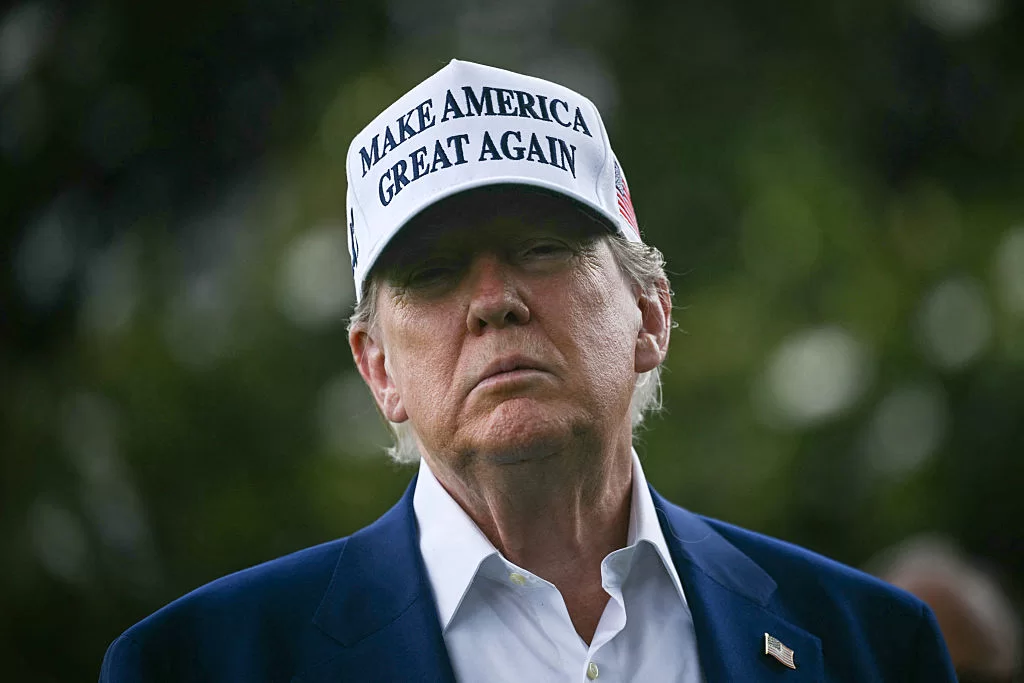- Friday, June 27, 2025
The US Supreme Court has restricted judges from issuing broad nationwide injunctions, impacting legal challenges to Trump’s executive order limiting birthright citizenship, as debate over constitutional rights intensifies.

By: Vibhuti Pathak
On June 27, 2025, the U.S. Supreme Court delivered a significant ruling that curtails the authority of federal judges to issue broad legal relief in high-profile cases. The 6-3 decision, authored by Justice Amy Coney Barrett, specifically addressed the scope of nationwide injunctions that had blocked enforcement of former President Donald Trump’s executive order seeking to limit birthright citizenship.
While the Court ordered lower courts to reconsider the breadth of their injunctions, it did not allow Trump’s controversial policy to take immediate effect nor did it rule on the underlying legality of the measure.
The Ruling and Its Implications
The Supreme Court’s conservative majority sided with the Trump administration’s request to narrow three nationwide injunctions issued by federal judges in Maryland, Massachusetts, and Washington state. These injunctions had prevented the government from enforcing Trump’s order while legal challenges were ongoing. The Court’s ruling stipulated that the executive order could not take effect until 30 days after the decision, providing time for further legal proceedings.
Justice Barrett wrote, “No one disputes that the Executive has a duty to follow the law. But the Judiciary does not have unbridled authority to enforce this obligation – in fact, sometimes the law prohibits the Judiciary from doing so.” The decision represents a blow to the power of federal judges to halt government actions on a nationwide scale, a tool often used to check executive overreach.
Dissent and Debate Over Constitutionality
Justice Sonia Sotomayor, joined by the Court’s two other liberal justices, issued a forceful dissent. She criticized the majority for sidestepping the constitutional question at the heart of the case and focusing solely on the judiciary’s authority to issue universal injunctions.
“The majority ignores entirely whether the President’s executive order is constitutional, instead focusing only on the question whether federal courts have the equitable authority to issue universal injunctions. Yet the order’s patent unlawfulness reveals the gravity of the majority’s error and underscores why equity supports universal injunctions as appropriate remedies in this kind of case,” Sotomayor wrote.
Trump’s Executive Order and Its Impact
On his first day back in office, President Trump signed an executive order directing federal agencies to deny citizenship to children born in the United States unless at least one parent is an American citizen or lawful permanent resident.
Plaintiffs, including 22 Democratic state attorneys general, immigrants’ rights advocates, and affected families, argued that the order would strip more than 150,000 newborns of citizenship each year. They contended that the directive violated the 14th Amendment, which guarantees citizenship to all persons born or naturalized in the U.S.
Legal Arguments and Historical Context
The Trump administration has argued that the 14th Amendment’s citizenship clause does not extend to children of undocumented immigrants or temporary visitors. In contrast, an 1898 Supreme Court decision, United States v. Wong Kim Ark, has long been interpreted as guaranteeing citizenship to children born on U.S. soil regardless of their parents’ citizenship status.
The administration’s legal team asked the Supreme Court to rule that federal judges lack the authority to issue nationwide injunctions, regardless of the legality of the executive order itself. Justice Sotomayor, in her dissent, warned that such a position would allow the executive branch to enforce potentially illegal policies unchecked.
Reactions and Ongoing Legal Battles
Trump celebrated the ruling as a “GIANT WIN” on social media, while immigrant rights groups and Democratic officials expressed concern. Cody Wofsy of the ACLU called the order “blatantly illegal and cruel,” vowing to continue fighting its enforcement. Washington state Attorney General Nick Brown described the decision as “disappointing on many levels,” but noted that the Court affirmed the ability of judges to issue broad injunctions when necessary.
Public Opinion and Future Implications
A recent Reuters/Ipsos poll found that only 24 per cent of Americans support ending birthright citizenship, with the majority opposing such a move. The Supreme Court, with its conservative majority, has recently handed Trump several victories on immigration policy but has also blocked some of his more aggressive measures.
The birthright citizenship case underscores the ongoing tension between executive authority, judicial oversight, and constitutional rights—a debate likely to continue as legal challenges unfold.